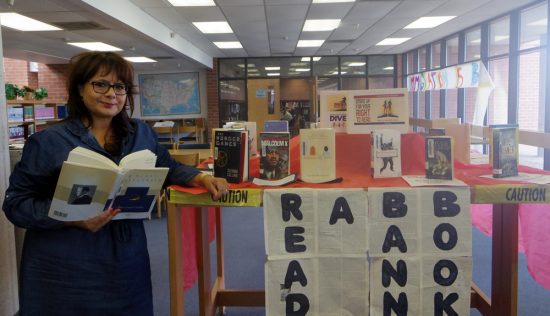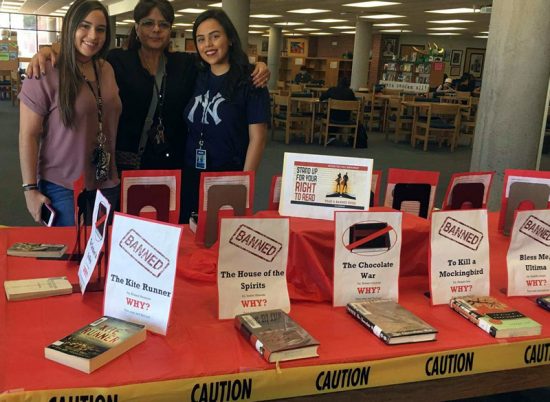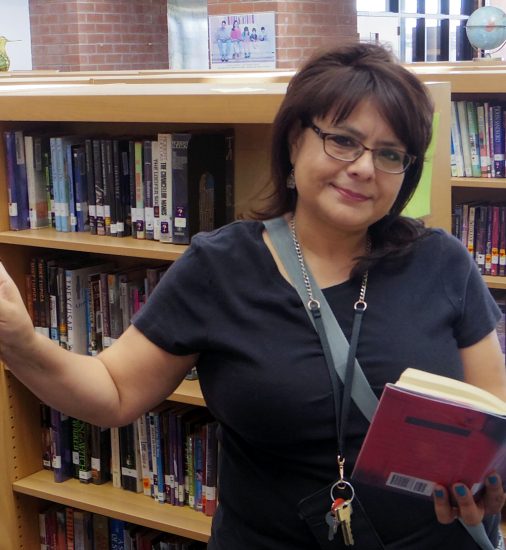
by Alina Cuen
In Pueblo’s Cajero Library, Ms. Marsha Jean Burrola, our school’s librarian, has once again constructed a banned book display—like other libraries across the United States from Sept. 24-30—to bring attention to the issue of banning books from many classrooms and schools.
Many books that are considered to be classics among literary scholars have been banned in many different schools across the country—which are on display in our library as part of Burrola’s showcase—including Bridge to Therabithia, Beloved, and Bless Me Ultima—among others—because of religious beliefs, witchcraft, predestination, sexually-charged themes, atheism, racist statements and themes, and anti-family.
Burrola said, “Students and teachers know that at anytime something we take for granted could get taken away. Once a book is challenged, it could very well be removed from the reading list. The whole banned books movement definitely challenges our freedom to read what we choose.”
Some books that become banned may surprise many. Popular books such as Boy Meets Boy, Harry Potter and The Hunger Games are banned from being read in some classrooms. Even a literary classic, To Kill a Mockingbird, currently is the number one banned book in the country. Even some Hispanic textbooks, such as Occupied America: A History of Chicanos, 500 Years of Chicano History in Pictures, and Message to Aztlan, have been banned; these books, at one time, belonged to a Mexican-American Studies curriculum.
Many students have strong feelings about any books removed from school libraries and classrooms—especially in a nation that is supposed to endorse and protect the First Amendment.
“I think some books are banned because parents are excessively protective of their children,” said junior Laura Conde. “They [parents] don’t let their children explore different types of literature.”
Burrola said that Pueblo High School isn’t the only high school to bring attention to banned books. She said that Sabino High School and Catalina High School also have banned-book displays for all to see.
Even though Sept. 30 has passed, Burrola said that she wants to draw attention to this issue. She plans to repeat her “Banned Books Display” next fall.
“I want to continue to bring to our community’s attention to recognize and celebrate our freedom to read what we would like to read, without censorship—to continue to honor the First Amendment,” Burrola said.




